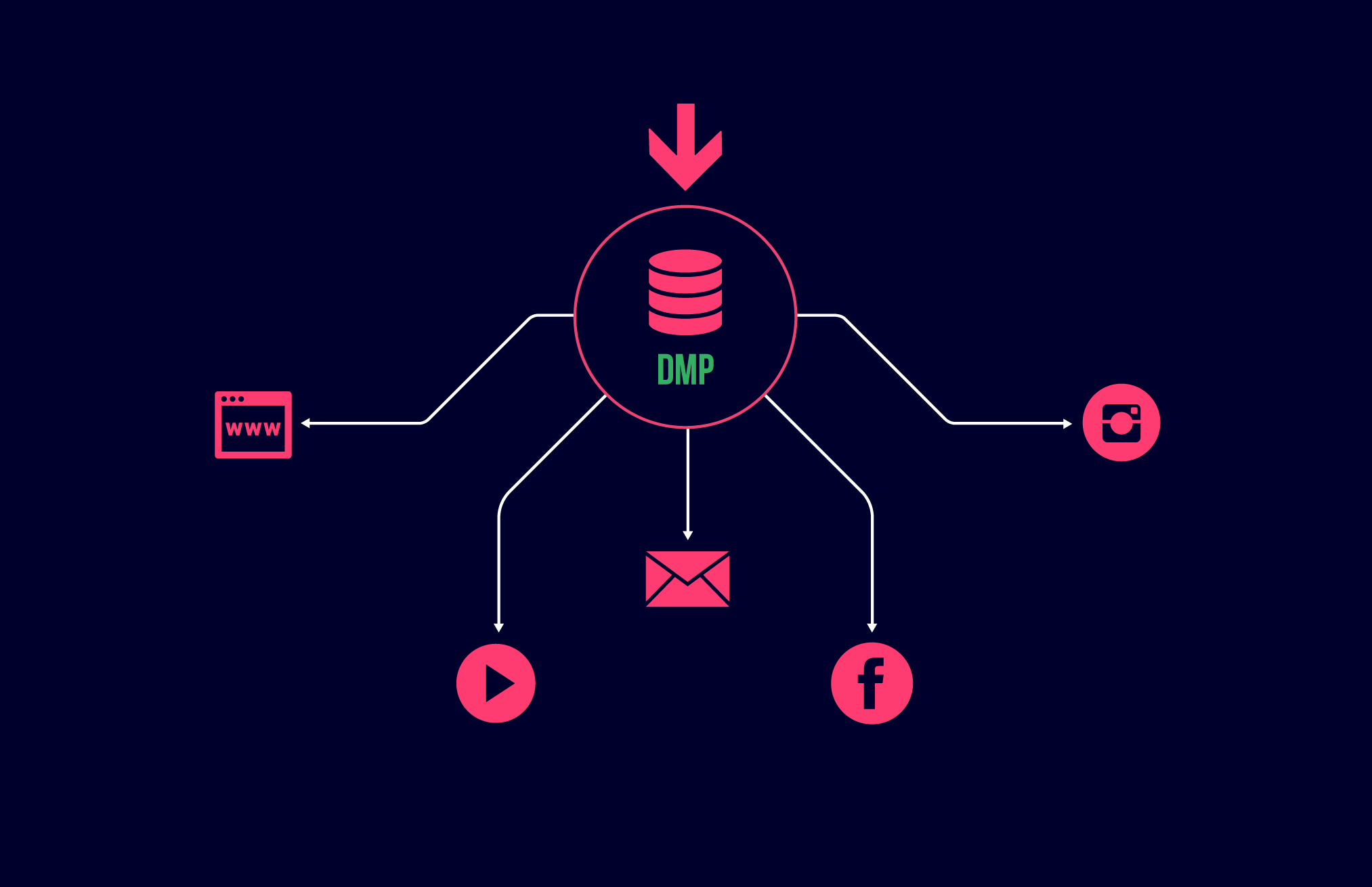BLOG

***Updated on 12/06/2024***
Author:
|
|
Anthony Botibol Head of Marketing Relay42 |
What is a DMP?
The acronym DMP stands for Data Management Platform. A DMP is a software solution that collects, organizes, and activates large volumes of data from various sources. These sources can include first-party data (directly from your website, CRM, etc.), second-party data (from partner companies), and third-party data (from external data providers). Therefore, a DMP's main function is to create detailed customer profiles and segments, which can be used to deliver targeted marketing campaigns.
Traditionally in MarTech, DMPs have been used to aggregate media marketing data, often collecting third-party data. In this situation, the DMP acts as an intermediary between a business and a third-party data vendor.
DMPs are typically limited to using anonymized data on how customers interact with an organization’s online channels and helping businesses target prospects and customers with relevant ads based on their online behavior.
Why is data management important for marketers?
A good platform will take it a step (or many!) beyond DMP profile creation. Instead of creating anonymized profiles, it will be able to identify the customer, which then allows you to personalize your messaging based on real-time behavior and interactions.
Sophisticated solutions will also include all of the rich 1st-party data you've collected elsewhere (CRM, call center, social media, POS) in your customer profiles, giving you a full view of your customer (or prospect). This way, your platform achieves much more than reducing ad spend and increasing ROI; it becomes a portal for getting to know your customers on an individual level.
By leveraging this kind of smart technology, marketers are able to meet and exceed their KPIs with responsible marketing initiatives that build mutually beneficial relationships. They are able to stop spamming and start serving relevant, timely, personalized real-time messaging at the right time and place.
Yesterday's DMP is today's journey orchestration engine
As technology has evolved, so has the MarTech we use to help us get our messages out there (here's an infographic outlining this evolution). With that evolution, DMPs are now complemented by CDPs (customer data platforms), which are morphing into journey orchestration engines. Today, when businesses are looking for a DMP, they're often actually looking for much more than the traditional concept of a DMP described above.
Create a single view of the customer through cross-channel data unification
The Relay42 platform, for instance, is often referred to as a DMP. And while at its core it helps businesses manage their data, it does a whole lot more than that.
Instead of focusing on 2nd- and 3rd-party data, for example, Relay42 is fed primarily with 1st party data from different (siloed) databases, platforms and channels. Then it organizes, refines and unifies that data to create a single view of the customer, along with a series of possible actions based on the customer profile.
Predict the next-best-action based on real-time customer data
It then goes beyond simply creating unified customer profiles by using integrated Artificial Intelligence to help make decisions based on the insights provided through real-time customer data. This translates to ultra-personalized messaging that drives ROI and builds lasting customer relationships.
Engage with customers throughout the entire journey
Finally, any future-forward platform should give you the tools to turn your data and insights into full-fledged journeys. This is where DMPs fall short and where today’s journey orchestration platforms pick up the slack. Once you’ve unified all of that data and gained new insights, you need to be able to make it actionable. That’s why Relay42 added an Intelligent Journey Orchestration engine to its platform: to give marketers the ability to orchestrate relevant end-to-end journeys — across all channels (online and offline) and all touchpoints, based on real-time customer data.
At the end of the day, the platform you choose should resolve the following organizational issues:
- Disparate data sources stuck in silos across the organization and externally
- Inability to unify and activate consistent, personalized messages to customers across channels and platforms
- Struggle to effectively optimize each channel due to a lack of context, and thus, wasting media spend
- Lack of cross-departmental overview of the full customer journey (and thus an inability to fully optimize it)
There are likely many stakeholders in your organization — from marketers and channel specialists to IT and customer service — who would benefit from a platform built to unify customer data and orchestrate effective customer journeys.
So if you feel like something needs to change, get out there and talk to other potential stakeholders in your organization. Find out what their needs are and find out if they’re looking for technology that will help them out. It could very well be that you’re looking for the same thing.
-----------------------------------------
Are you looking for a DMP for your business? Ask yourself these 5 questions before you make the final call.
MORE RESOURCES
Learn more about Intelligent Journey Orchestration, the data-driven marketing strategy for hyper-personalized cross-channel customer journeys.



